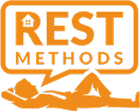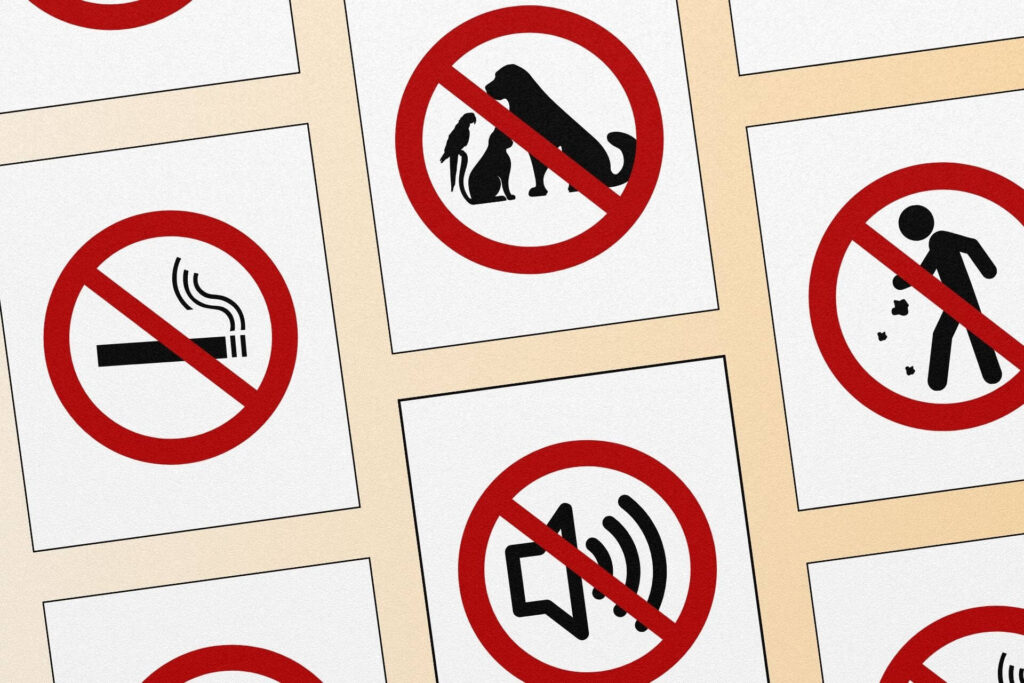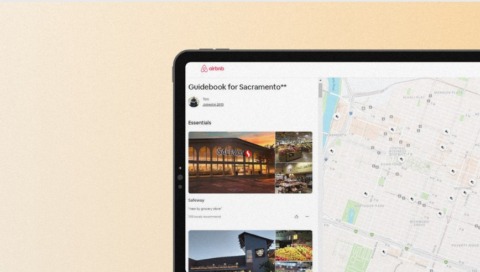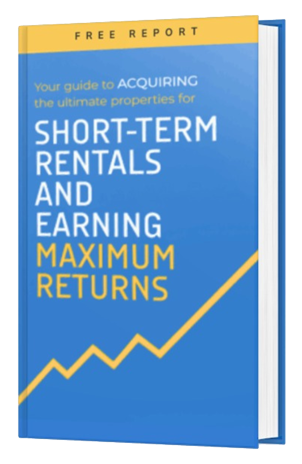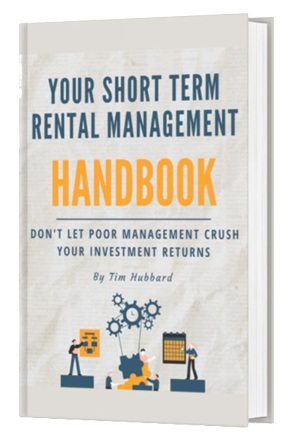Did you know that a well-defined set of Airbnb house rules can be the linchpin to a successful rental experience? That’s right, these rules aren’t just a formality; they’re the backbone of a smooth and enjoyable stay for both hosts and guests. Let’s dive into the world of Airbnb house rules and discover how they can transform your hosting experience.
Why you must have Airbnb House Rules
Imagine stepping into a new city, a new neighborhood, and a new home. You’re excited but also a bit apprehensive. What’s allowed? What’s off-limits?
This is where Airbnb house rules come into play. They act as a roadmap, guiding guests through what’s permitted and what’s not within and around the property.
By setting these clear guidelines, hosts can prevent misunderstandings, avoid potential pitfalls, and ensure a harmonious rental experience.
Crafting Effective Airbnb House Rules

Simplicity and Clarity
Ever tried to assemble a piece of furniture with a confusing manual? Frustrating, isn’t it?
The same goes for Airbnb house rules.
They need to be as clear and straightforward as a well-written recipe. No ambiguity, no confusion, just simple and explicit instructions that leave no room for misinterpretation. It’s about making the guest feel at home, not lost in a maze of regulations.
Balance
Finding the right balance in life is key, and the same applies to Airbnb house rules. It’s like walking a tightrope; you need to protect your property without scaring away potential guests.
Too many rules can feel restrictive, while too few can leave you and your property vulnerable.
Customization
Not all guests are created equal. Some are families on vacation, others are professionals on a business trip, and then there are the party-goers.
Crafting rules that cater to your target audience is like tailoring a suit; it needs to fit just right. Understanding the needs and preferences of potential guests allows you to create rules that resonate with them, enhancing their stay.
Opening Statement
First impressions matter, don’t they? An opening statement in your house rules is like a warm handshake or a friendly smile when meeting someone new. It sets the tone and builds a connection.
Including a welcoming opening statement not only greets guests but also provides essential guidelines before their arrival. It’s the first step in building trust and ensuring a positive experience.
Airbnb Common House Rules
#1 Parking and Off-Limit Areas
Navigating parking and understanding off-limit areas can be as tricky as finding your way in a new city. Clear guidelines on these topics act as a GPS, directing guests to the right spots and keeping them away from restricted zones. It’s about making the journey smooth and the stay hassle-free.
#2 Local Resident Booking
Local resident bookings have evolved with the pandemic. While previously discouraged to prevent parties, now local guests are accepted, provided they have positive reviews. It’s a rule that’s not enforceable by Airbnb but serves as a guideline for hosts to ensure quality control.
#3 Noise Level Control
Ever been kept awake by loud music from next door? Controlling noise levels is not just about keeping the peace; it’s about respecting others’ space and time. Setting specific quiet hours is like a gentle reminder to lower the volume and be mindful of others. It ensures that everyone can enjoy their stay without disturbing the harmony
Noise control is essential, especially in older properties where sound travels easily. So, we gently remind our guests to keep it down after 10:00 PM. It’s all about keeping the peace.
You might like this podcast episode on “Sound In Your Rental and The Consequences“
#4 Valid Working Phone Number
With everything going on in the world, it’s become super important for us to be able to reach our guests. So, we ask that they have a working phone number. It helps us spot any fishy bookings, like those with Google voice numbers.
#5 Gate Remotes and Parking Passes
We’ve got a clear policy about gate remotes and parking passes. If they go missing, there’s a replacement fee. It’s all about making sure our guests have smooth access and the next guests aren’t left in a lurch.
#6 No Smoking Policy
Our no smoking policy has had to grow with the times. It now includes vape pens and marijuana. If we find evidence of smoking, we might charge a daily fee. It’s a bit tricky to enforce, but we do our best.
You might like this podcast episode on “5 Steps to Combat Smoking in Your Unit“
#7 Allowed Number of Guests
We’ve got a cap on the number of guests to help keep parties in check and comply with local regulations. If this rule is broken, it could mean saying goodbye without a refund.
#8 Late Checkouts
Ever missed a flight or been delayed? Life happens, and so do late checkouts. But like any service, it may come with a fee. Defining policies for late checkouts is like having a clear cancellation policy with an airline. It sets expectations and ensures that both parties know what to expect in case of delays.
We handle them with a fee structure to compensate our hardworking housekeepers. If the delay gets too long, it might cost a full day’s rent.
#9 No Pets Allowed
We’re pretty clear on this one – no pets allowed. It helps keep things straightforward when guests are searching on platforms like Airbnb.
You might be interested in this podcast episode on “Should You Accept Pets?“
#10 Excessively Dirty Units
Sometimes, things get a bit too messy. If a unit is excessively dirty, we might charge an additional cleaning fee. We just need proof, like pictures, to enforce this.
#11 Long-term Bookings
For those planning to stay over 30 days, we might ask them to sign a lease and go through a background check. It’s just a little extra step to ensure everything’s in order.
#12 Liability for Refunds or Discounts
If a guest’s actions force us to refund or offer discounts to upcoming guests, we might ask the offending guest to cover those charges. It’s all about fairness, after all.
Free Airbnb House Rules Template
Why reinvent the wheel when you can customize it? Crafting Airbnb house rules doesn’t have to be a daunting task. Several platforms offer free templates that act like a blueprint, allowing you to build rules that fit their property like a glove. It’s about taking the guesswork out of the process and providing a solid foundation to create comprehensive and effective rules.
Get My Proven Airbnb
House Rules Template
After hosting over 30,000+ guests, these 12 proven House Rules will protect you from just about anything…
Tips on implementing and adapting your rules
Customization is key
Every rule must be tailored to the property, considering factors like age, location, and specific needs.
The language and tone must be hospitable
Using words like “please” and avoiding capitalization helps convey rules without sounding hostile.
Monitoring and adapting rules is essential
Especially in changing circumstances like the pandemic. Tools for monitoring smoke or noise levels are available, but disclosure is vital.
Placement of rules can vary
From Airbnb listings to the back of the entrance door. The goal is to be comprehensive without overwhelming guests with a “40-page booklet on house rules”.
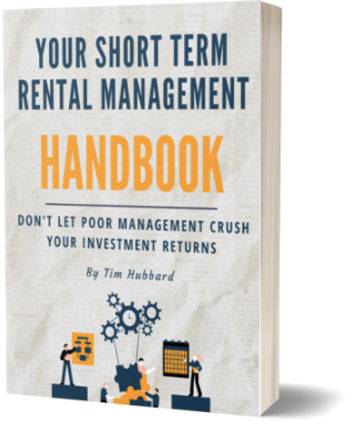
Don’t let poor management crush your returns.
Follow my 3-step mandatory reservation checklist to ensure your property is prepared to maximize returns.
Frequently Asked Questions
Yes, as an Airbnb host, you can specify that your listing is not suitable for children. This should be clearly stated in your house rules and listing description to ensure guests are aware before booking.
Airbnb cleaning typically includes a thorough cleaning of the property between guest stays. This can encompass cleaning all rooms, sanitizing surfaces, washing linens and towels, restocking amenities, and ensuring the property meets the cleanliness standards set by Airbnb. Some hosts may also include a deep cleaning to adhere to specific COVID-19 guidelines.
While hosts can’t force guests to perform regular cleaning duties, they may include specific rules about cleaning up after oneself, such as washing dishes or taking out the trash. These expectations should be clearly outlined in the house rules.
On Airbnb, anyone under the age of 18 is generally considered a minor, and adult supervision may be required. The age at which someone can book an Airbnb varies by country but is typically 18 or older.
To avoid bad guests, hosts can set specific requirements for booking, such as verified ID, positive reviews from other hosts, or pre-booking communication. Clearly stating house rules and expectations can also help in attracting the right guests.
Yes, hosts can refuse guests, but it must be done in accordance with Airbnb’s nondiscrimination policy. Refusing guests based on race, religion, nationality, gender, or other protected classes is not allowed.
Yes, Airbnb guests can potentially sue a host if they believe they have a legal claim, such as personal injury due to negligence on the host’s part. Hosts should be aware of their legal responsibilities and consider appropriate insurance coverage.
If a guest refuses to leave after their reservation has ended, the host should contact Airbnb support immediately. Airbnb will attempt to mediate the situation, and if necessary, the host may need to pursue legal eviction proceedings. It’s advisable for hosts to understand local laws regarding tenant rights and eviction to handle such situations properly.
